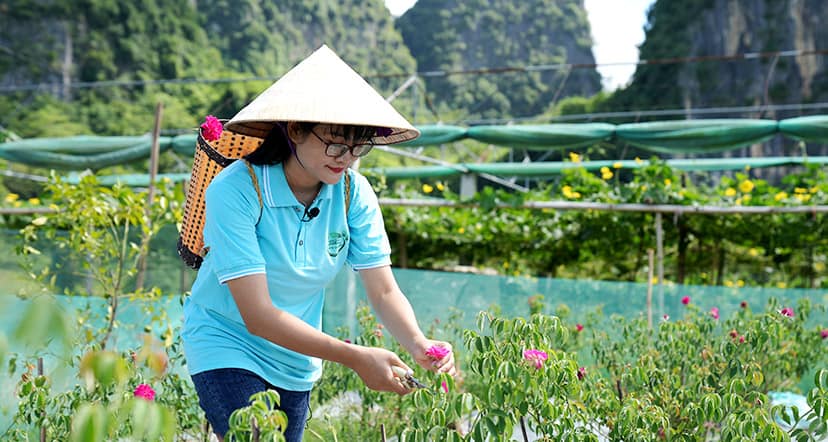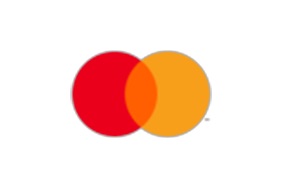Give Her Credit: Expanding Women's Access to Finance
Cross-sector partnerships and digital products are empowering women-led businesses to help advance an equitable economic recovery.
Published 03-18-22
Submitted by Mastercard
The Mastercard Center for Inclusive Growth
By Payal Dalal, Luz Gomez & Avni Patel
In December 2019, Pham Phuong Thao set up a small shop selling flowers and ornamental plants in her home district in northern Vietnam. Four months later, the pandemic hit, devastating her fledgling storefront business.
Despite the challenges, Thao was able to secure one of the things that hold many women back — affordable financing. “As we are a young family, we have no collateral, and it was very difficult to mobilize cash flow,” says Thao. “It is extremely difficult to access loans from commercial banks.”
A $1,100 low-interest loan from Thanh Hoa Microfinance Institution and access to digital tools and other services have enabled her to reinvest in her business and diversify into online sales, wholesale and garden landscaping consulting. She now employs six people.
“As we are a young family, we have no collateral, and it was very difficult to mobilize cash flow. It is extremely difficult to access loans from commercial banks.”
Pham Phoung Thao
FLOWER SHOP OWNER NORTH VIETNAM
In the midst of the COVID-19 crisis, women entrepreneurs like Thao have proven to be incredibly resilient and adaptable. However, the traditional lending model, which often requires collateral or credit histories, is failing many of them. In low- and middle-income countries, there is a $1.7 trillion financing gap for female entrepreneurs. Additionally, many financial service providers have become wary of issuing loans to micro and small businesses they perceive as “risky.” This has left women-run businesses, which tend to be smaller than those owned by men, with few lifelines to weather the economic shock of the pandemic.
At the Mastercard Center for Inclusive Growth, we see women entrepreneurs as critical drivers of global economic recovery. With innovative programs and partnerships centered around gender intentionality, we are working to get credit flowing and connect women to training and resources that power their resilience and growth. Below are four approaches we are taking with our grantees and partners.
Adapting products to overcome barriers and meet needs
In many countries, cultural norms and other societal barriers mean women owners have historically lagged behind men in startups, revenue, and access and use of financial services in the formal economy.
Through our support of CARE’s Ignite program, we’re working with financial service providers to turn those cultural norms into opportunities to better serve women. For example, in Pakistan, gold is often one of the few assets a woman can claim as her own, so CARE worked with UBank to adapt its loan product so women can use their gold jewelry as collateral.
In Peru, women told CARE they didn’t want their loan assessment to be affected by their husband’s debts. So CARE worked with BBVA Microfinanzas’ Financiera Confianza to redesign a loan product so that it uses alternative credit assessments and doesn’t require a spouse to co-sign (spousal co-signature is a common practice in Peru and other markets, even when women are the sole owner of the business).
CARE also used women-centered design to work with fintech Canal Circle in Vietnam to adapt an app that Thao and other women entrepreneurs are using to manage their loans more easily. Thao credits the app, along with support from Thanh Hoa MFI, with helping her stay on top of her installment payments. After a year of building a good credit history, the MFI extended a second, larger loan to Thao, just in time for her busy season during the Lunar New Year. “These loans have supported me all the way, the interest rates were great, and my worries have disappeared,” says Thao.
Investing in digital transformation to scale microfinance
Globally, microfinance institutions (MFIs) provide more than 140 million low-income clients with credit and savings services, a majority of whom are women. Researchers have found that female borrowers pay back microfinance loans at higher rates than men, which also means targeting women can benefit an MFI’s bottom line.
However, MFIs, and other inclusive financial service providers, often have difficulty scaling their offerings. Since 2018, a global partnership between Accion and Mastercard has supported the digital transformation of nine financial providers in eight countries so they can better serve micro and small businesses in an increasingly digital economy.
The partnership also is generating insights that can inform how other MFIs navigate their digital journeys. One critical lesson: As MFIs lean into digital channels, they should continue to tap into physical and social networks — branches, loan officers, peer groups — to promote digital adoption among clients. Insights from our partners show that although women clients often start with less trust in digital tools, lower mobile device ownership and stronger preferences for in-person interactions — they can be quick to embrace digital financial services with the right support.
From January to December 2021, the percentage of women actively using the digital products and services supported through the Accion partnership saw a 60% increase, a promising sign that when it is done right, digital transformation can pave the way for inclusive digital adoption.

Building new data models to increase lending
Out-of-date, gender-biased lending practices often mean female entrepreneurs are more likely to get higher interest rates, smaller loan amounts and increased penalties for mistakes. Newer, innovative lending methodologies, including supply chain financing and using alternative or cash flow data, show incredible potential for increasing credit access, particularly with low-income women.
Through the data.org Inclusive Growth and Recovery Challenge, the Center is supporting a project by Women’s World Banking, in partnership with University of Zurich, to research and deploy ethical algorithms to increase lending to women borrowers in India, Mexico and Nigeria.
In Kenya, our Jaza Duka partnership with Unilever is digitizing payment histories with suppliers to help KCB Bank assess credit risk and extend working capital to micro-retailers. The credit allows retailers to stock their stores, even when they have limited cash on hand. The lending is combined with financial and business management training to enhance the effectiveness of the program.
Results from the program point to how access to finance doesn’t just impact business outcomes, it can also help shift household power dynamics. A 2019 lean data survey of Jaza Duka participants found that 96% of female respondents reported earnings increases, with an average of a 28% increase. Women also said they had increased confidence in their abilities and were now contributing more to important family decisions.

Embedding gender intentionality with tech and touch
Research shows that interventions that combine finance and training, like Jaza Duka’s approach, often work best for women. As grant-makers, the Center has focused heavily on testing a variety of digital and hybrid approaches to business training and capacity building, often paired with financial services.
For example, for women balancing demands at home with the growing demands of their businesses, a lack of time can be a serious problem. In the CARE Peru program, we found women were so time-strapped that they were training late at night or in the early morning. CARE used these insights to design a new small business app offering one-stop support that can be tackled in 10-minute increments.
We have also learned that women opt-in to in-person training for reasons beyond skill-building — for a sense of community, for the sidebar and networking conversations that are harder to replicate online, and for the break from household duties. For example, when our training program in Poland went fully virtual during the pandemic, the number of women business owners attending dropped dramatically. Understanding women entrepreneurs’ motivations for showing up and finding ways to replicate those valued connections virtually will be key to scale interventions in the future. Online mentoring and women-managed call centers are two promising approaches our grantees are taking to balance tech and touch with gender intentionality.
By bringing together assets, networks and expertise across financial service providers, technology platforms, and entrepreneurial support organizations, we continue to work toward opening up much-needed access to finance and digital resources for entrepreneurs like Thao.
“I have more products, more customers and a stable customer base,” says Thao, as she reflects on her first three years of business. “I want to become the largest supplier of flowers and ornamental plants in this area and expand my customer base.”
Together, we can collectively work to help millions of growth-minded women like Thao realize their aspirations, and catalyze a women-powered economic recovery.
Check out more content from The Mastercard Center for Inclusive Growth

Mastercard
Mastercard
About Mastercard
Mastercard is a global technology company in the payments industry. Our mission is to connect and power an inclusive, digital economy that benefits everyone, everywhere by making transactions safe, simple, smart and accessible. Using secure data and networks, partnerships and passion, our innovations and solutions help individuals, financial institutions, governments and businesses realize their greatest potential. With connections across more than 210 countries and territories, we are building a sustainable world that unlocks priceless possibilities for all.
More from Mastercard

